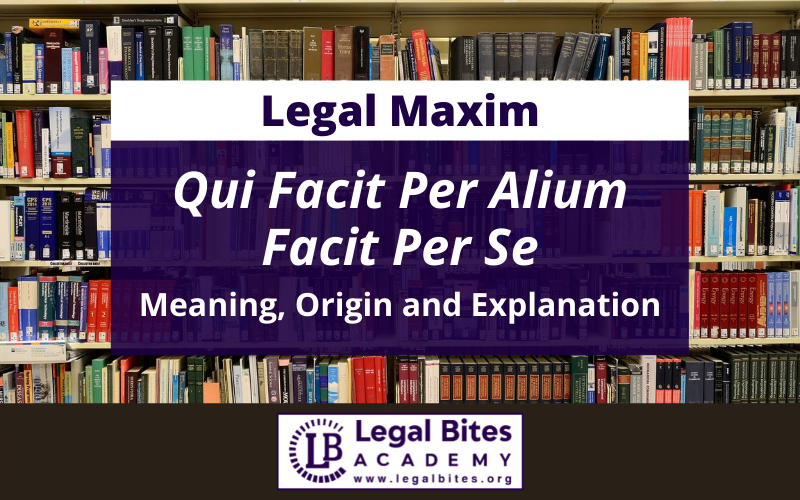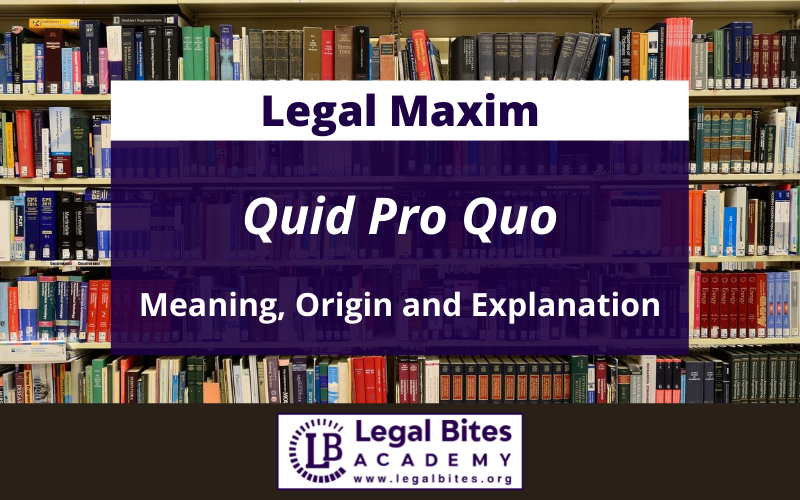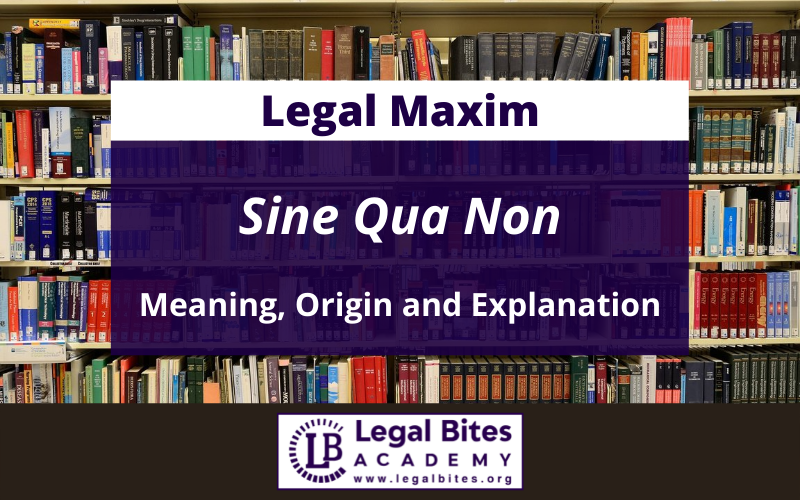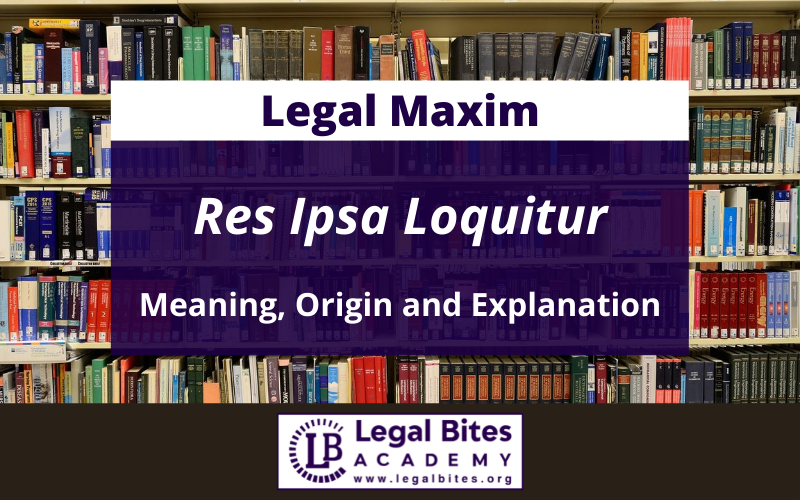Per Curiam: Origin, Meaning and Explanation
This article titled ‘Per Curiam: Origin, Meaning and Explanation’ is written by Sahajpreet Bhusari and discusses the legal maxim of Per Curiam. I. Origin and Meaning Per Curiam is a legal term of Latin origin. In Latin, it literally means ‘in the opinion of the court’[1]. II. Explanation This maxim refers to a judgement reached by a panel of… Read More »
;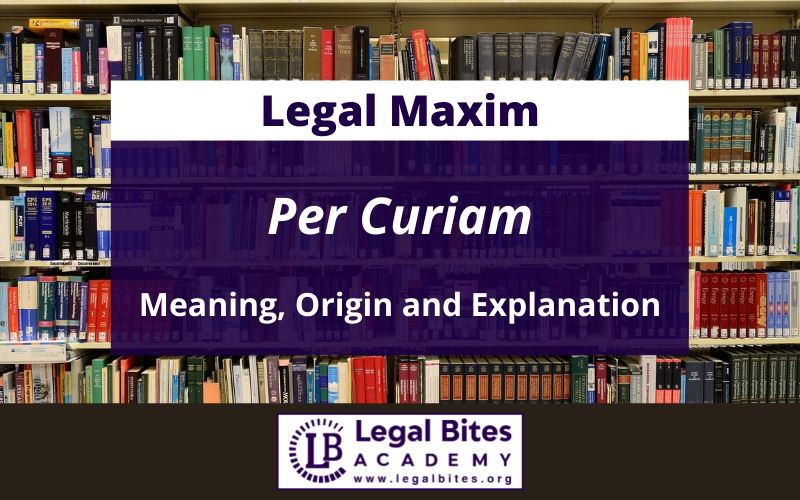
This article titled ‘Per Curiam: Origin, Meaning and Explanation’ is written by Sahajpreet Bhusari and discusses the legal maxim of Per Curiam. I. Origin and Meaning Per Curiam is a legal term of Latin origin. In Latin, it literally means ‘in the opinion of the court’[1]. II. Explanation This maxim refers to a judgement reached by a panel of judges, but without a specific author’s name connected to it. It refers to rulings that are labelled as such by the court giving...
This article titled ‘Per Curiam: Origin, Meaning and Explanation’ is written by Sahajpreet Bhusari and discusses the legal maxim of Per Curiam.
I. Origin and Meaning
Per Curiam is a legal term of Latin origin.
In Latin, it literally means ‘in the opinion of the court’[1].
II. Explanation
This maxim refers to a judgement reached by a panel of judges, but without a specific author’s name connected to it. It refers to rulings that are labelled as such by the court giving the opinion, and these opinions are usually brief. The opinions will usually cover topics that the issuing court considers to be rather uncontroversial.
III. Application
A per curiam judgement is a decision reached by a group or panel of judges in an appeals court. The judgement is published as a court decision, with no indication as to who wrote it. Per Curiam can also refer to a written opinion issued on behalf of the whole court by the chief or presiding judge.
IV. Illustration
Per Curiam rulings are usually brief and deal with problems that the court does not believe to be very contentious.
V. Case Laws
In Bengal Immunity Company v. The State Of Bihar And Others[2], the court found that the High Court was incorrect in dismissing the plea under Article 226 of the Constitution Of India.
The justices in the case of Emperor v. Raghunath Ramchandra[3] believed that the District Magistrate should not propose to the Magistrate that he examine his own ruling and send the matter to the High Court for revisions.
The court concluded in the matter of K Prabhakaran v. Jayarajan[4] that what is suspended under section 389 of the Code Of Criminal procedure, 1973, is not the verdict or punishment.
References
[1] Per Curiam, Available Here.
[2] AIR 1953 Pat 87.
[3] (1941) 43 BOMLR 99.
[4] Appeal (civil) 8213 of 2001.


